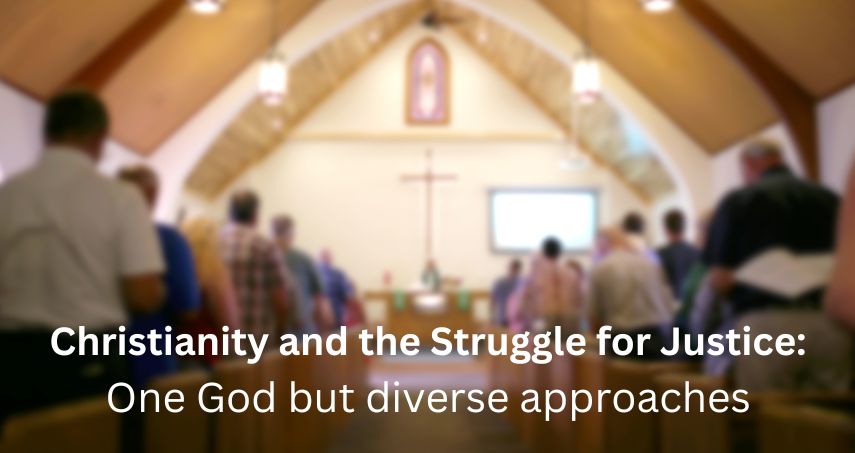
Long ago, in the rich history of Christian thought, the work of Saint Augustine of Hippo continues to resonate, particularly in his famous book, “The City of God” that a society without justice is a gang of robbers, given that some people are more privileged and powerful than others resulting in a misuse of power with impunity.
Concern about justice has been a central and integral part of the Christian faith. This notwithstanding, within the broader Christian tradition, there are differences in approaches to justice, depending on the particular tradition one is referring to.
The Catholic church’s approach to justice among other things is unique for its emphasis on human dignity of all human beings irrespective of differences. The approach stresses respect for human life and the promotion of the vision of people having the right to participate in their society’s decision in pursuit of the common good. The tradition also underscores a preferential protection for the poor and vulnerable in society and a fundamental moral commitment by all to solidarity with those struggling for the purpose of guaranteeing the common good.
The Catholic approach to social justice also set great priority on the importance of stewardship of God’s creation for the sake of honoring God and the common good, just as they assign great importance to the decentralization of public decision making as far as it is possible.
Theologian Reinhold Niebuhr’s work is cited as an example of the Protestant approach to justice and response to Catholic social teaching. In contrast to the Catholic approach, his approach stresses Christian realism because he believes the problem of sin is the major obstacle to achieving true justice as fallible human beings can often not engage in self-sacrificial love which is the ideal for justice. His vision of justice recognizes history, but he believes a Christian approach to justice should transcend history just as Jesus’ death and resurrection transcends human vision of life. This Protestant approach acknowledges the problem of sin, where justice will never be perfect but an approximation of the ideal, and therefore to counter that, justice in any human society requires the balancing of power and acknowledgment of human self-interests and competing forces.
Niebuhr believes that the economic structures and situations have the capacity to shape people’s moral outlook and so even reason can be subjected by self-interests, thus causing some people’s conditions to be overlooked. While ordinary humans can change to become promoters of justice this comes at great human cost. It is more difficult to change the moral commitments of groups that benefit materially and socially in an unjust system.
Liberation theology is another approach to justice in the Christian tradition which originally started in Latin America because of the unique social, cultural, political, and historical contexts of the church and society there which are different from that of the Western world. It is a theology that tries to respond to challenges in its own context, which has resulted in great opposition from some Christian communities in the Western world. In South Africa, it was an eminent idea pursued by Christians to challenge the racial domination and brutal inequalities of the system of Apartheid. It is an interdisciplinary approach to engaging the struggle for social justice that emerged from the Catholic tradition but also drew and integrated insights from some secular traditions.
Some unique contributions from the Liberation approach have made to the discussion on justice are that being liberated is not just restricted to the spiritual realm but other spheres of life, such as political, sexual, economic, etc. Thus, liberation is both social and personal. They believe that people cannot be liberated if they are not conscientized and that there is no theology that is not rooted in certain social and historical contexts i.e., it is contextual. They emphasize the experience of the poor and therefore start their theological reflection there, which resulted in them underscoring the preferential option for the poor in the struggle for social justice. In another important respect, for liberation theology, violence in society is not just personal. Thus, they underscore institutional violence which tends to have long lasting and devasting consequences on individuals and social groups. For liberation theologians, justice cannot be achieved without struggle and centering the struggles of socially marginalized people.
Irrespective of one’s denomination and Christian tradition, there are key questions to face and sincere inspiration derived from each of the traditions. Believers are reminded of the commitment we share to a more just and compassionate world.
This message was prepared for a seminar led by Global Horizon’s Ubuntu Training team, Dr. Leon Rodrigues and Dr. Samuel Zalanga.
Ubuntu Training offers discussion and training for leadership groups, churches, schools and other small groups. We equip teams in multicultural ministry with assessments, coaching and resources for racial reconciliation and cultural inclusion.
The Ubuntu team of trainers have extensive experience in diversity and inclusion and Christian ministry in leadership roles at local Christian colleges and universities.
For more information: Ubuntu Training
Contact us: info@globalhz.org
